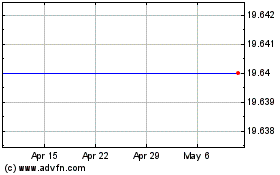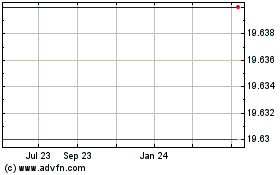Yahoo Hacking Charges Cast New Light on Ties Between Russia's FSB, Cybercriminals
March 15 2017 - 6:41PM
Dow Jones News
By Nathan Hodge
MOSCOW -- The U.S. government's indictment of Russian government
officials in connection with the hacking of Yahoo Inc. casts new
light on the nexus between Russia's intelligence services and the
world of cybercriminals.
The Justice Department on Wednesday alleged two officers of
Russia's Federal Security Service, the successor agency to the
Soviet-era KGB, recruited hackers to breach the Yahoo's
networks.
It isn't the first time the U.S. government has accused Russia's
spies of tapping the expertise of hackers. U.S. intelligence
agencies last year accused the Russian government of trying to
interfere in the 2016 U.S. presidential elections by orchestrating
the hacking of emails from the Democratic National Committee and
other entities. The Russians have consistently denied any
interference in U.S. domestic politics.
"Washington did not communicate with Moscow through the channels
available to address issues related to cybersecurity in this case,"
a Russian official said Wednesday following the Justice
Department's allegations. "This fact, as well as the lack of
specifics in this case, suggest the next round of raising the theme
of 'Russian hackers' in the domestic political squabbles in the
U.S."
The new U.S. indictments also appear to overlap with a major
cybercrime scandal that has rocked the Russian political
establishment.
Earlier this year, Russian news media were abuzz over the news
of arrests tied to a high-profile treason case. Those arrested
included at least two intelligence officials at the FSB and an
employee at Kaspersky Lab, Russia's most prominent cybersecurity
firm. The Russian government provided little official confirmation,
but investigative reports and Russian news media speculated the
arrests were tied to a hacking collective named "Shaltai Boltai," a
shadowy group that earned notoriety in Russia by leaking the
private correspondence of high-ranking government officials.
The FSB hasn't spoken publicly about the treason case and
couldn't be reached about the charges announced Wednesday.
Much as WikiLeaks has become a headache for successive U.S.
administrations, Shaltai Boltai revealed compromising information
and hacked the accounts of prominent individuals, including the
Twitter account of Prime Minister Dmitry Medvedev.
Adding to the sensation of the case, two of the individuals
named late last year in the arrests were Russian intelligence
officers charged with battling cybercrime: They worked in the
Information Security Center, the FSB's cybersecurity wing. One of
those two officers was Dmitry Dokuchaev, who was also charged in
the U.S. government indictment Wednesday.
Mr. Dokuchaev couldn't be reached for comment. He is believed to
be in Russia.
Andrei Soldatov, an expert on Russia's internet, said Mr.
Dokuchaev, who went by the online alias Forb, according to Russian
media, was recruited into the security services for his skills and
contacts in the darker corners of the web.
"He had some knowledge about the digital underground, that's
something really important," Mr. Soldatov said. "For the FSB, it
was the perfect thing to try to get."
Mark Galeotti, senior researcher at the Institute of
International Relations Prague, said Russian spy agencies had
employed "a degree of outsourcing of capacity" for cyber
operations, turning to groups that use hacking for criminal
enterprises such as fraud and online scams.
"The Americans outsource [cyber capabilities], but they tend not
to go to criminals," he said. "The Russians have a more pragmatic
approach."
Several countries caught up in confrontation with Russia have
been on the receiving end of cyberattacks in recent years. Cyber
attackers traced to Russia carried out attacks on Estonian websites
in 2007, temporarily taking down much of the country's online
traffic. During a brief war between Russia and Georgia the
following year, hackers traced to Russia attacked and defaced
Georgian sites.
In recent years, however, Mr. Galeotti said Russian intelligence
agencies have built up their own in-house cyberattack capabilities,
recruiting hackers and putting them directly in government
employ.
But when they need "surge capacity," such as during the conflict
with Ukraine, Mr. Galeotti added, "they have gone to the private
sector -- the criminal private sector."
Write to Nathan Hodge at nathan.hodge@wsj.com
(END) Dow Jones Newswires
March 15, 2017 18:26 ET (22:26 GMT)
Copyright (c) 2017 Dow Jones & Company, Inc.
Altaba (NASDAQ:AABA)
Historical Stock Chart
From Mar 2024 to Apr 2024

Altaba (NASDAQ:AABA)
Historical Stock Chart
From Apr 2023 to Apr 2024
